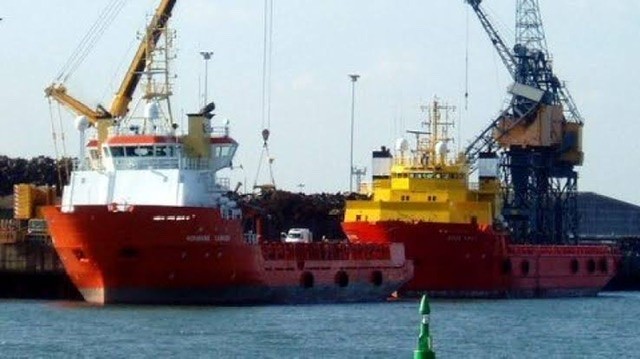The Executive Secretary of Nigerian Content Development and Monitoring Board, Wabote Simbi has said that Nigeria spent a total of $3.047bn on marine vessels between 2014 and 2018.
Simbi disclosed this as the Federal Government commenced feasibility study for the construction of a shipyard in Brass Island, Bayelsa State.
Advertisement
According to the NCDMB Boss, 73 per cent of the total spend during this period went to crew boats, security vessels, diving support vessels and fast supply intervention vessels.
Other vessels in that category include mooring launch and shallow draft vessels, he said.
He said, “There are over 20,000 ships working for the oil and gas sector in Nigerian waters and the annual spend was over $600million in the upstream sector.”
He regretted that most of the vessels that operated in the oil industry are taken to Ghana, Equatorial Guinea, Cameroun and other countries for dry docking because Nigerias local dry docks no longer provide the required services.
Advertisement
However, he said the construction of the shipyard in Brass Island would cater for the maintenance and repair services of cargo vessels, oil tankers, and LNG carriers.
The feasibility study will be funded by the NCDMB as part of its overarching mandate to domicile key oil and gas industry infrastructure and increase retention of industry spend.
The Minister of State for Petrolem Resources Timipre Sylva during the project’s kick-off meeting stated that it will be executed by China Harbour Engineering Company, which had carried out similar projects across the globe as well as in Nigeria.
According to the Minister, the high traffic of vessels in and out of Nigeria would provide a huge opportunity to retain substantial value in-country through the provision of dry-dock services.
He added that the shipyard project would further develop and harness the nation’s position in the oil and gas value chain and linkage to other sectors of the economy.
Advertisement
On the prospects of the shipyard project, the minister said that the project would benefit from the upcoming implementation of the Africa Continental Free Trade Agreement as Nigeria could serve as hub for ship-building and repairs.
On his own part simbi assured the Brass shipyard project and other ongoing efforts to catalyze manufacturing would help the Board achieve the target of 70 per cent Nigerian content by 2027.
He confirmed that the project was being driven by the NCDMB in conjunction with NLNG as a Capacity Development Initiative on the back of the Train 7 Project.
He mentioned that Nigeria has a long coastline of 853 kilometers and navigable inland waterways of 3,000 kilometers, which offer immense potential for maritime sector development, stressing that Brass coastline, was very close to the Atlantic Ocean.
“The project’s schedule indicates that the site work would be executed within six months while feasibility study would be completed in four months,” he said.



